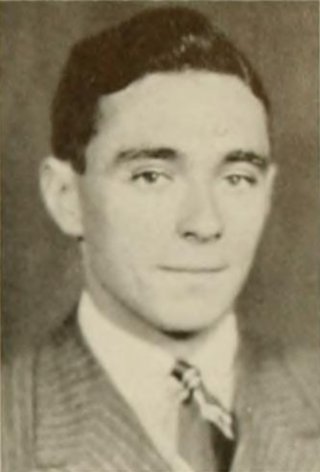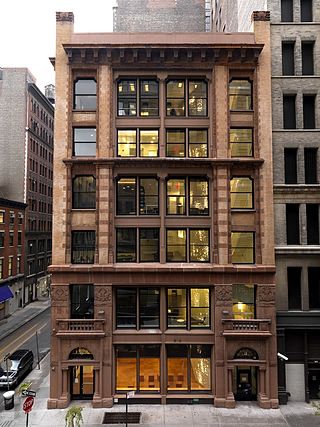Related Research Articles

Jerome Seymour Bruner was an American psychologist who made significant contributions to human cognitive psychology and cognitive learning theory in educational psychology. Bruner was a senior research fellow at the New York University School of Law. He received a BA in 1937 from Duke University and a PhD from Harvard University in 1941. He taught and did research at Harvard University, the University of Oxford, and New York University. A Review of General Psychology survey, published in 2002, ranked Bruner as the 28th most cited psychologist of the 20th century.

The British Academy for the Promotion of Historical, Philosophical and Philological Studies is the United Kingdom's national academy for the humanities and the social sciences. It was established in 1902 and received its royal charter in the same year. It is now a fellowship of more than 1,000 leading scholars spanning all disciplines across the humanities and social sciences and a funding body for research projects across the United Kingdom. The academy is a self-governing and independent registered charity, based at 10–11 Carlton House Terrace in London.

The Indian Institute of Advanced Study (IIAS) is a research institute located in Shimla, India. It was set up by the Ministry of Education, Government of India in 1964 and started functioning from 20 October 1965. It is currently housed in the Rashtrapati Niwas.


Lawrence Harvey Schiffman is a professor at New York University ; he was formerly Vice-Provost of Undergraduate Education at Yeshiva University and Professor of Jewish Studies. He had previously been Chair of New York University's Skirball Department of Hebrew and Judaic Studies and served as the Ethel and Irvin A. Edelman Professor in Hebrew and Judaic Studies at New York University (NYU). He is currently the Judge Abraham Lieberman Professor of Hebrew and Judaic Studies at New York University and Director of the Global Institute for Advanced Research in Jewish Studies. He is a specialist in the Dead Sea Scrolls, Judaism in Late Antiquity, the history of Jewish law, and Talmudic literature.

The Institute of Fine Arts (IFA) is a graduate school and research center of New York University dedicated to the study of the history of art, archaeology, and the conservation and technology of works of art. It offers Master of Arts and Doctor of Philosophy degrees in Art History and Archeology, the Advanced Certificate in Conservation of Works of Art, and the Certificate in Curatorial Studies.

Lawrence Weschler is an author of works of creative nonfiction.

Richard Sennett is the Centennial Professor of Sociology at the London School of Economics and former University Professor of the Humanities at New York University. He is currently a Senior Fellow of the Center on Capitalism and Society at Columbia University. Sennett has studied social ties in cities, and the effects of urban living on individuals in the modern world.

Rebecca Newberger Goldstein is an American philosopher, novelist, and public intellectual. She has written ten books, both fiction and non-fiction. She holds a Ph.D. in philosophy of science from Princeton University, and is sometimes grouped with novelists such as Richard Powers and Alan Lightman, who create fiction that is knowledgeable of, and sympathetic toward, science.

Craig Jackson Calhoun is an American sociologist, currently University Professor of Social Sciences at Arizona State University. An advocate of using social science to address issues of public concern, he was the Director of the London School of Economics and Political Science from September 2012 until September 2016, after which he became the first president of the Berggruen Institute. Prior to leading LSE, Calhoun led the Social Science Research Council, and was University Professor of the Social Sciences at New York University and Director of NYU's Institute for Public Knowledge. With Richard Sennett he co-founded NYLON, an interdisciplinary working seminar for graduate students in New York and London who bring ethnographic and historical research to bear on politics, culture, and society.
Joy Garnett is an artist and writer from New York, United States. Trained as a painter, her work explores contemporary practices around cultural preservation, alternative histories and archives. Her interdisciplinary work combines creative writing, research and visual media. In her early paintings (1997-2009), Garnett engaged issues around contemporary consumption of media and the distinctions between documentary, technical, and artistic image making. Her mature work draws on archival images, alternative histories and the legacy of her maternal grandfather, the Egyptian Romantic poet, bee scientist and polymath Ahmed Zaki Abu Shadi. Garnett is married to conceptual photographer and video artist Bill Jones.

NY Salon is an organization based in New York City composed of intellectuals, academics, artists, and public personalities. They collaborate with foundations, universities, and notable individuals to host discussions of today's issues, design lectures and debates, and hold forums to review controversies.

The Digital Classicist is a community of those interested in the application of digital humanities to the field of classics and to ancient world studies more generally. The project claims the twin aims of bringing together scholars and students with an interest in computing and the ancient world, and disseminating advice and experience to the classics discipline at large. The Digital Classicist was founded in 2005 as a collaborative project based at King's College London and the University of Kentucky, with editors and advisors from the classics discipline at large.
The Centre for the History of the Book (CHB) was established in 1995 at The University of Edinburgh as an international and interdisciplinary centre for advanced research into all aspects of the material culture of the text - its production, circulation, and reception from manuscript to the electronic text.
Aryeh Neier is an American human rights activist who co-founded Human Rights Watch, served as the president of George Soros's Open Society Institute philanthropy network from 1993 to 2012, had been National Director of the American Civil Liberties Union from 1970 to 1978, and he was also involved with the creation of the group SDS by being directly involved in the group SLID's renaming.
Stanford University has many centers and institutes dedicated to the study of various specific topics. These centers and institutes may be within a department, within a school but across departments, an independent laboratory, institute or center reporting directly to the dean of research and outside any school, or semi-independent of the university itself.

Katherine Elizabeth Fleming is President and CEO of the J. Paul Getty Trust and the Alexander S. Onassis Professor of Hellenic Culture and Civilization in the Department of History at New York University (NYU) as well as Provost Emerita of the university. She was Provost of NYU from 2016 to 2022. She has been President and CEO of the J. Paul Getty Trust since August 1, 2022, an appointment with which she became "effectively...the most powerful woman in the US museum world." Since arriving at the Getty, she has shown an interest in new models for the ownership of art and has moved to further Getty's commitments to the Southern California art community.

Tony Robert Judt was a British-American historian, essayist and university professor who specialized in European history. Judt moved to New York and served as the Erich Maria Remarque Professor in European Studies at New York University and director of NYU's Erich Maria Remarque Institute. He was a frequent contributor to The New York Review of Books. In 1996 Judt was elected a Fellow of the American Academy of Arts and Sciences and in 2007 a corresponding Fellow of the British Academy.

The New York University Department of Philosophy is ranked 1st in the US and 1st in the English-speaking world as of the most recent edition of the Philosophical Gourmet Report from 2021. It is also ranked 1st in the world by the 2023 QS World University Rankings, and is internationally renowned. It has particular strengths in epistemology, history of philosophy, logic, metaphysics, moral and political philosophy, philosophy of language, philosophy of logic and philosophy of mathematics, and philosophy of mind. The department offers B.A., M.A., and Ph.D. degrees in philosophy, as well as a minor in philosophy and a joint major in language and mind with the NYU Departments of Linguistics and Psychology. It is home to the New York Institute of Philosophy, a research center that supports multi-year projects, public lectures, conferences, and workshops in the field, as well as outreach programs to teach New York City high school students interested in philosophy.
The Remarque Institute is an institute at New York University which focuses its research on contemporary Europe. It was founded in 1995 by Professor Tony R. Judt and is named after the German writer Erich Maria Remarque, whose widow made a major donation to NYU. Its aims are "to support and promote the study and debate on Europe, and to encourage and facilitate communication between Americans and Europeans".
References
- ↑ "N.Y.U. Names Director Of Humanities Institute", New York Times, April 3, 1987, retrieved 2008-04-02
- ↑ Richardson, Lynda (January 13, 2001), "Headhunting For a Thinker And a Buzz", New York Times, retrieved 2008-04-02
- ↑ Schuessler, Jennifer (2021-04-15). "A New York Intellectual Bastion Finds a New Home". The New York Times. ISSN 0362-4331 . Retrieved 2022-01-10.